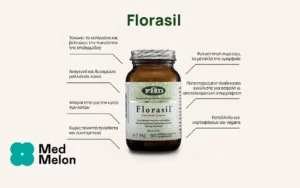Scientific Names of Sesame Seed and Oil: Sesamum indicum L. [Fam. Pedaliaceae]
Forms:
Organic sesame seed and seed meal (defatted seed); flower petal tea; leaf tea
Traditional Usage:
– Antioxidant
– Blurred vision
– Breastfeeding
– Breathing Problems (flower petals)
– Coughs (seeds and leaves)
– Dizziness
– Essential Fatty Acid Deficiency (seeds/oil)
– Frequent Urination (oil)
– Hair Loss (seeds)
– Low sperm count (seeds)
– Lowering LDL Cholesterol
– Milk Flow, to increase (seeds)
– Pain
– Prostatitis
– Tinnitus
– Toothache
Overview:
Sesame (Sesamum indicum) is one of about 15 species of herbaceous plants of the genus Sesamum native to Africa and Asia, and is the most widely cultivated species for its nutritious seeds and oil. The seeds are recommended by Chinese herbalists for nursing mothers to stimulate milk flow and for men to prevent hair loss. Sesame seed is also a traditional toothache remedy and contains at least seven pain-relieving compounds. The seed is still today recommended for treating tinnitus, blurred vision and dizziness. Sesame seed meal is an excellent source of both calcium (43.3 mg/oz) and antioxidants. The seed is also rich in the amino acid arginine (2.5% or 713mg/oz), which according to naturopaths is important for countering low sperm counts and in phenylalanine (255mg/oz) for relieving pain. It is recommended that men get approximately 4 grams of arginine per day to boost sperm counts. Sesame seed meal is also very rich in glutamine (3.8% or 1.1g/oz) – an important amino acid precursor for glutathione, said by medical researchers to be the most important self-made antioxidant in the human body. Sesame seed oil is rich in linoleic acid Omega-6 Essential Fatty Acids (35.0 – 50.0%), oleic acid (Omega-9 monosaturated fats) (35.0 – 50.0%) and Vitamin E (4% or .556 mg/tbsp). The oil is also extremely rich in phytosterols (117.64 mg/tbsp), mainly beta sitosterol and contains two other powerful phytochemicals, sesamin and episesamin, lignans known to stimulate cellular regeneration, detoxification and cleansing. The exposure of abnormal human blood cells to sesamin and episesamin (isolated from unroasted sesame seed oil), led to both growth inhibition of abnormal cells and the induction of apoptosis. Phytosterols, such as beta sitosterol, have been shown to be as effective as conventional drugs for relieving frequent urination in aging men suffering from prostate conditions and quickly lower cholesterol.
Active Ingredients:
Sesame seed oil contains: Palmitic acid (7.0 – 12.0%); Stearic acid (3.5 – 6.0%); Oleic acid (Omega 9) (35.0 – 50.0%); Linoleic acid (Omega 6) (35.0 – 50.0%), phytosterols (117.64 mg/tbsp) and Vitamin E (4% or .556 mg/tbsp) (1tbsp = 13.6 g)
Sesame seed meal (partially defatted) contains: Water 5%; Protein 17% or 4.8 g/oz; Total lipid (fat) 48% or 13.6 g/oz; Carbohydrate, by difference 26% or 7.4 g/oz; Ash 4% or 1.13 g/oz; Minerals including Calcium 43.3 mg/oz; Iron 4.1 mg/oz; Magnesium 98.1 mg/oz; Phosphorus 219.4 mg/oz; Potassium 115.1 mg/oz; Sodium 11.0 mg/oz; Zinc 2.9 mg/oz; Copper 0.41 mg/oz; and Manganese 0.40 mg/oz. Vitamins including Thiamin, Riboflavin, Niacin, Pantothenic acid, Vitamin B-6; Folate and Vitamin A. Amino acids including: Tryptophan, Threonine, Isoleucine, Leucine, Lysine, Methionine, Cystine, Phenylalanine 255mg/oz, Tyrosine, Valine, Arginine 2.5% or 713mg/oz, Histidine, Alanine, Glutamic acid 3.8% or 1.1g/oz, Glycine, Proline and Serine. (1 oz = 28.35 g) (Information taken from The National Agriculture Library’s USDA Nutrient Database for Standard Reference at http://www.nal.usda.gov).
Suggested Amount:
Sesame Seeds and Meal: Take one to two tablespoons of sesame seeds or seed meal per day or as needed based on nutrient requirements.
For Toothache: Boil one part sesame seed with two parts water until half the liquid remains and apply this directly to the tooth and/or gum disease.
To Stimulate Milk Flow: The Chinese roast and grind the seeds and then eat them with a small amount of salt.
Sesame seed oil: Take one to two teaspoons of sesame seed oil per day or as needed based on nutrient requirements. Sesame seed oil, rich in omega-6 and 9 fatty acids but lacking in important omega-3 EFAs, should be taken as part of a balanced oil blend.
Drug Interactions:
None known
Contraindications:
None known
Side Effects:
Sesame seeds, meal and oil, taken as a part of a well balanced diet, does not cause any side effects. Because sesame seed oil is rich in omega-6 and 9 fatty acids but contains no omega-3 EFAs, it should be taken as part of an EFA balanced oil blend.
References:
Duke, J. 1997: The Green Pharmacy, The Ultimate Compendium of Natural Remedies from the World’s Foremost Authority on Healing and Herbs. pp. 342; 424. Rodale Press.
Carper J. 1995. Stop Aging Now. (Chapter on Glutathione (and glutamine)). Harper Collins Publishing, Inc., New York, NY, p. 124-137.
Erasmus, U. 1993: Fats that Heal, Fats that Kill. Published by Alive Books, Burnaby, B.C., Canada. pp. 1-456.
Miyahara Y, Hibasami H, Katsuzaki H, Imai K, Osawa T, Ina K, Komiya T. 2001. Sesaminol from sesame seed induces apoptosis in human lymphoid leukemia Molt 4B cells. Int J Mol Med. 2001 May; 7(5): 485-8.
Yamashita K, Kagaya M, Higuti N, Kiso Y. 2000. Sesamin and alpha-tocopherol synergistically suppress lipid-peroxide in rats fed a high docosahexaenoic acid diet. Biofactors 11(1-2): 11-13.




